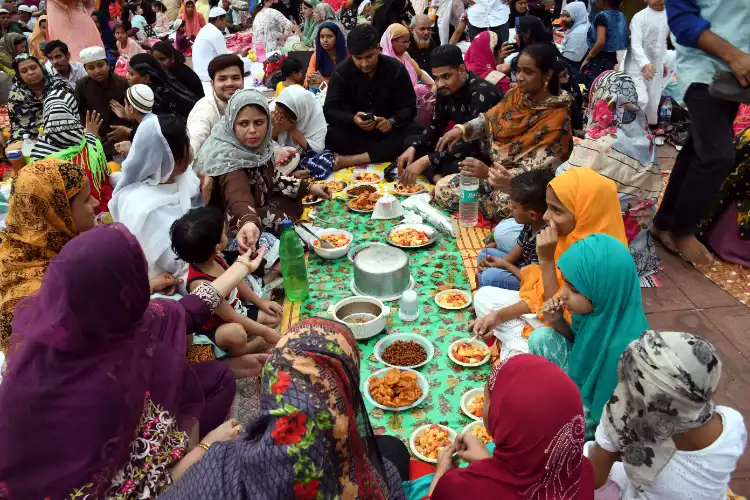
Saquib Salim
It is Eid-ul-Fitr festival that is often romanticized with the imaginary of large gatherings at Idgah (prayer ground where Eid prayers are offered), men embracing each other in hugs, and men visiting each other's place to eat Sheer Khurma or sivaiyyan. All these pleasant optics have been mostly constructed by men. A closer look will reveal that women are mostly absent from all these much-publicized spaces of festivities. In the name of tradition, as Sahir Ludianvi says, “Mardo ne banayi jo rasme, unko haq ka farmaan kaha” (The traditions set by men were termed as divine order), women are kept away from the festivities and this absence has been silenced through the power of written words and other media.
Eid-ul-Fitr is celebrated to mark the end of the holy month of Ramadan (or, Ramzan), during which Muslims fast from dusk to dawn. Even a cursory look at social media, literature, or movies will reveal that this holy month is again romanticized around delicacies prepared during iftar and food served during late-night sehri. In this case, also a critical analysis will reveal that most of the grand iftar and sehri optics are male-dominated features where women feature on the margins. Google pictures of food bloggers looking for iftar and sehri in old cities of Lucknow, Delhi, Hyderabad, etc. and you will realize that what we celebrate as ‘Muslim culture’ is nothing but ‘Muslim male culture’.
Last night after the moon had been sighted and Eid was declared, the ‘festivities’ started in Muslim households. In my own home, my father, my brother and I started calling ‘relatives’ and ‘friends’ to wish Eid. Of course, we also did a few market-related chores, which, believe me, did not take us more than a couple of hours each. On the other hand, the women of our home, my mother, my sister-in-law, and my wife started preparing Sheer Khurma, Kimami Sivaiyyan, Khasta, Kebab, Chole, and other delicacies. They did not complain. They have never complained. It is the kind of social conditioning through which women in our part of the world are raised. None of these women ever feel that while their husbands, brothers, fathers, and other male relatives can spend hours on phone calls wishing for Eid, they cannot have this luxury; they should have this ‘unwritten responsibility to cook and serve. They are responsible for cleaning and making the home presentable for the guests.
Keep in mind that the romanticized hugs at Idgah do not feature women because at most of the places adult women are not allowed to go. But still, all the preparations, like ironed clothes, fragrances, etc for men are the responsibility of women. We men cannot even offer namaz if women do not take up the role of our caretakers.
It is not only Eid. In all the stories of iftar and sehri, the women cooking inside a kitchen are often invisibilized. For a whole month, women keep cooking lavish food items without ever complaining. While we men, keep on whining about how difficult fasts are. We try to cut short on professional commitments in the name of fasts. But women, have no excuse. Rather, women are supposed to work in the kitchen at the peak of hunger and thirst only because “this is our culture and tradition.”
We have to realize that Ramazan and Eid belong to both men and women equally. We cannot expect women to work like superhumans, where they do not feel emotionally or physically exhausted like men. While men need to maintain social relationships with relatives and friends, why is this an unaffordable luxury for women? If men can sleep on the eve of Eid, why do women have this obligation to cut short their sleep to cook?
Next time, when you praise Eid festivities, iftar or sehri try not to silence the role of women. Acknowledge their hard work and start shouldering responsibilities.
